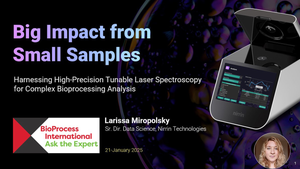
The continuity of supply chain from research grade to GMP is a differentiator for Aldevron, the firm says as it expands its capabilities in Wisconsin.
Contract development and manufacturing organization (CDMO) Aldevron has acquired an existing biomanufacturing plant located in the University of Wisconsin Research Park in Madison.
Tom Foti, VP and general manager of Aldevron, did not disclose to Bioprocess Insider from which company the CDMO acquired the $8 million purpose-built plant, but said the 1,000 L E. coli facility will help feed growing market demand.

Image: iStock/dk_photos
“Market demand in the Gene & Cell, Gene Editing and mRNA therapeutic markets are driving significant demand for recombinant proteins and pDNA at both research grade and GMP,” he told us.
“At a macro-level, therapeutic strategies for new approaches in precision medicine require new supply chains for large amounts of biologics. Aldevron continues to invest in capacity to scale manufacturing batch sizes as our clients achieve clinical success. We also see a need to help clients progress from research ‘proof of concept’ testing to clinical trials all while working with the same vendor. This continuity of supply chain from research grade to GMP is a differentiator for Aldevron.”
The expansion comprises of two Sartorius Biostat C-plus 20 L fermenters, two Sartorius Biostat D-DCU 200 L fermenters, a Sartorius 1,000 L fermenter a Sharples AS16 continuous flow centrifuge, a SaniMatic Ultra Flow 45 CIP skid, a kill-tank system, and a horizontal airflow workstation.
The expansion also provides space for an additional 300 liters in culturing capacity for insect and mammalian expression, supporting future demand.
“Increased capacity for expressing proteins in mammalian based systems will continue to be important as antibodies represent a major therapeutic approach for biopharma companies,” said Foti.
“Client’s appreciate that we have multiple expression platforms and it is a strategic advantage for Aldevron that we can express proteins in bacteria, mammalian and insect cells as certain proteins can only be produced in one of the three host systems.
“Offering manufacturing services that express proteins in E. coli will continue to be our largest offering as we expand with the new fermentation capacity however we will continue to make invests in Eukaryotic systems also.”
About the Author
You May Also Like

schedl_b_and_w.jpg?width=100&auto=webp&quality=80&disable=upscale)
schedl_b_and_w.jpg?width=400&auto=webp&quality=80&disable=upscale)





